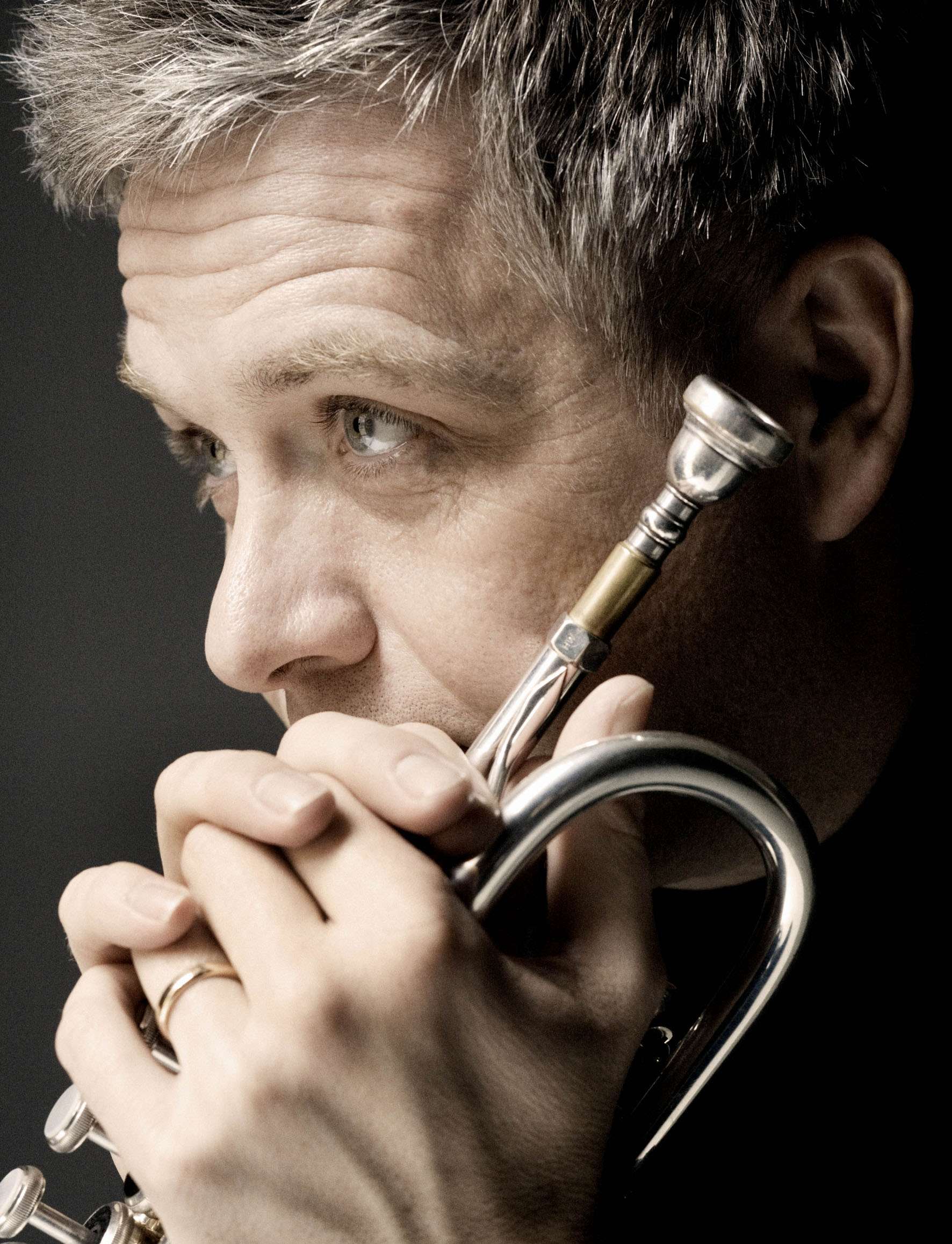|
Back
Share Price Rising Zurich
Tonhalle
01/26/2011 - & January 27, 28*, 2011
Rolf Martinsson: Bridge, Trumpet Concerto No. 1 op. 47
Anton Bruckner: Symphony No. 4 “Romantic” (2nd version, 1878/1880)
Håkan Hardenberger (trumpet)
Tonhalle-Orchester Zürich, Andris Nelsons (conductor)

H. Hardenberger (© Marco Borggreve)
The Swedish composer Martinsson (born in 1956) joins an illustrious group of contemporary composers who have written trumpet concertos for the supremely gifted trumpeter and fellow Swede Håkan Hardenberger, inspired by his extraordinary technical and musical ability. Martinsson’s 1998 concerto is called “Bridge” and appears to be his most popular work to date.
Whilst one could not fail to admire Hardenberger’s flawless virtuosity throughout (one never thought for an instant that any note would be skewed), the piece itself was disappointing. It was tonal and fairly melodic but vacuous in long passages. Various composers came to mind, Gershwin in the jazzier passages, Debussy in the more lyrical sections. The orchestra was Bruckner-sized even including the use of wine glasses, skimmed around their rim by a percussionist. The thrilling Finale could not, however, dispel the ennui of what had preceded it.
Bruckner himself had a far from an easy ride as he composed what is probably his most popular work. Nelsons chose, as most conductors, the second version. Bruckner labelled it the “Romantic”, alluding to its depiction of an almost Wagnerian world of medieval castles and hunts in leafy woodland glades.
Nelsons delivered a very fine performance, with many interpretative touches, extreme dynamic contrasts and some changes in tempo, which can often jar, but here they were all well considered and executed. It was not a particularly fast performance (80 minutes or so) but a thrilling, unrestrained and spontaneous one.
Nelsons relished every climax and built each skilfully. Tempi and dynamics were perfectly judged. The grandeur of the work was fully revealed, the fanfares impressed. Volume was never needlessly suppressed; this was a young man’s Bruckner. The Tonhalle hall is the classic shoe-box and acoustics are fine for less bombastic works, here one might have wished for a larger hall, such as, say, the Kultur- und Kongresszentrum (KKL) in Lucerne.
Nelsons’ rapport with the orchestra was self-evident; he beamed at the orchestra throughout, clearly pleased with their first-rate playing, especially the exuberant brass section and in particular the principal horn. Nelsons leaps around a lot, but got the result he wanted. It was a pity the Tonhalle could not quite fill the hall on three consecutive nights, but perhaps that is too tall an order for a Bruckner symphony.
Andris Nelsons’ share price continues to rise. He has already conducted the Vienna, Berlin and New York Philharmonics, and many prestigious orchestras will no doubt be sounding him out for a longer-term relationship. On the basis of this evening, one could again see why. After the Scherzo’s galloping fanfares and then the glorious radiant fourth movement with its stirring, edge-of-the-seat stuff, and its satisfying climax, the audience left the hall wholly refreshed.
Birmingham will have to fight hard to hang on to its star conductor.
John Rhodes
|